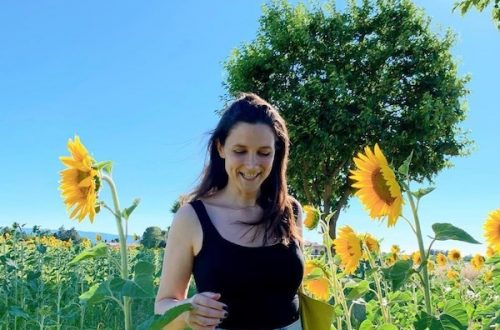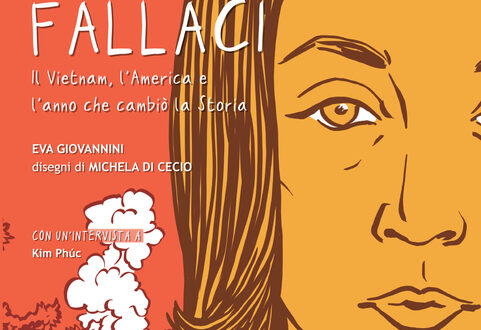A Kindness
Featured in the May 2021 Issue of The Open Doors Review.
Fiction by: Sarah Barnett-Benelli
I was travelling with a dear friend in England. We were heading north to attend the funeral of a mutual acquaintance but had missed a connection and found ourselves stranded for the night in one of those dismal little ex-industrial towns —I don’t remember its name. We booked into the only hotel—a run-down affair by the station that smelled of boiled cabbage and air freshener. The cook had gone home so we set out through the dreary, damp streets to try and find something to eat.
My friend, I should add, is Italian and a sensitive man. In his own country he is a well-known food writer. But he is a reasonable man and he understands that on a wet Monday night, in a very small town, in a depressed part of England he is not likely to find the sort of food he is accustomed to.
We passed a plethora of fish and chip shops. We saw a Chinese restaurant with grubby white table cloths. There was a Prince of Burgers and a Chicks-U-Like that we thought at first was a brothel but the smell of rancid cooking fat gave it away. A pub offered chips in a basket—but not on Mondays. We were beginning to despair. Then we went around the corner and we saw it—Italia Autentica! My friend—I should have said that he has had a very difficult time and is recovering from a breakdown—my friend and I were drawn towards this restaurant like pins toward a magnet. Italia Autentica!
Now my friend chuckled a bit. He knows that the concept of. Italia Autentica! is an oxymoron. He knows that in reality there is no such country as Italia. Italia is actually a collection of countries, all with their own identities, their own traditions, their own dialect. Their own food. And within those countries there are towns and cities and little villages, all of which are still, metaphorically speaking, at war with one another. An Italian will never say he comes from Italy. He will tell you he is from Calabria, from Sicilia, from Toscana. He will tell you the name of his town or his city or his village. A Sienese will not be impressed if you tell him your family was from Firenze. The rivers of blood that flowed at Monteperti, in twelve-hundred and sixty, have not been forgotten! Neapolitans know that Naples was a Kingdom and in their hearts they know they are not Italians at all but Neapolitans.
My friend, a food writer, as I said, knows this. He also knows that if the food of these various regions is served elsewhere it will not be authentic at all. My friend knows that one cannot, truly, eat pesto outside of Genova because the land around Genova has the perfect conditions on which to grow basil. Likewise Carpaccio di cinghiale, a delicacy of Siena, must be made from the wild boar that roam the woods and the countryside nearby. Of course the boar should have been shot by the restaurateur, the meat prepared by the man’s wife. How else could it be authentic?
But my friend understands that not everybody knows this. He is a reasonable man! So we look in the restaurant window and my friend’s eyes fill with tears. Because standing in that window is a dresser on which there is a selection of Italian wines. And what my friend has seen, in the centre of the row, is a bottle from Carmignano. Carmignano! This is the area of Toscana from which my friend’s family hails! Did I mention that my friend has recently lost his mother and has been suffering from a deep melancholia? The tears are flowing now but we enter the restaurant, hearts lifted, full of hope. The table cloths are clean and made from a red checked cotton. Clearly the food will be rustic. And authentic. As authentic as can be managed in this damp, alien, English town on a wet Monday evening.
My friend calls out: “Buona Sera!” He is looking forward so much to an authentic conversation, with an authentic person from one of the countries collectively known as Italia. He doesn’t even mind which region! If the person speaks in a dialect my friend can cope. He has travelled widely throughout the collection of countries that the politicians call Italia.
The waiter steps forward, a wary look in his eye. My friend is tall. His dark wavy hair was styled in Firenze. His coat, tossed nonchalantly around his shoulders, was bought on the Via Tornabuoni.
“Good evening.” It quickly becomes clear that the waiter does not speak Italian. Of any sort. I can see that my friend is disappointed but not yet disheartened. The chef, he is sure, will come and greet him and they can speak in Italian — any variety of Italian — my friend will not mind. And they can talk about food and toast each other with wine from Carmignano and speak of how the vines have been grown there since Roman times and were given special status by Cosimo III de Medici. Even the English Queen Anne, my friend will remark, used to import wine from Carmignano! They will speak too of the olives on the higher terraces, recall the leaves shimmering silver in the sunshine. The olives, as the chef will know, are being harvested right now.
We are seated, the only people here. The menu is brought. My friend is surprised to see that ‘paninis’ are on offer. How can this be? Surely this is a misprint. My friend loves his language – of any variety – so we call the waiter. I explain, because my friend doesn’t speak English,
“It says here paninis! ”
“Yes, says the waiter, do you want a panini?”
“No, no. We want a proper meal but my friend is upset because the menu says paninis. That is not an Italian word. The singular is panino. The plural is panini. The chef will know this.”
“I will ask,” says the waiter.” He comes back. “The chef says they are called paninis.”
“They are not,” my friend insists. I know my friend is right.
“Is the chef Italian?”
“He is not,” said the waiter. My friend, as I said, has had a breakdown. His shoulders slump. I remember the melancholia.
“Well,” I say cheerfully, “We are not going to eat panini anyway. Let’s start with bruschetta – that is spelled correctly at least. Then we will have some pasta.” The menu is limited. There is Tagliatelli alla Bolognese or Lasagne, or Cannelloni, but the last two are off this evening. So we order the Tagliatelli alla Bolognese, even though we are not in Bologna and we know that the meat will have been raised on English grass and there was that problem with the mad cows, and the pasta, it is certain, will have been bought in the supermarket. And we acknowledge that even in Bologna there can be no agreement as to precisely how this dish should be made. We know that every chef in every restaurant and every housewife in every kitchen will have the exact method and they will not be quite the same.
The bruschetta arrives. It does not look right. It looks like toast, with tomatoes on top. But we try it. There is no oil! No garlic! No basil! On bruschetta! We call the waiter again.
“Where is the oil, the garlic?”
“We don’t use them. People here don’t like garlic and they don’t want anything oily.” We are hungry and so we eat the tomatoes on toast. My friend says he wouldn’t have minded if they had called it tomatoes on toast. Tomatoes on toast my friend would have accepted. There is an honesty about tomatoes on toast. An authenticity. What upset my friend was that tomatoes on toast was called bruschetta.
“But where is the wine?” The bottle is brought. My friend examines the label carefully. Everything is as it should be. The wine is DOCG: Denominazione di Origine Controllata e Garantita. The bottle has not been opened.
“Please uncork it now,” said my friend, through me, to the waiter. “It should really be served at room temperature, but still …” The waiter, looking anxious, goes to the kitchen. We can hear the sounds of drawers being opened, of cutlery clattering. More clattering. We hear an expletive – I will not sully my reader’s ear by repeating the word, one generally considered to be Anglo-Saxon, although in fact the New Shorter Oxford dictionary states that its origin is unknown and in my opinion the word could originate in the Latin verb facere.
The waiter returns. The corkscrew, it seems, was borrowed by the people at the Chinese restaurant as they too had a customer who wanted to drink wine – only last week! What a coincidence! He will go there and get it! But first he brings the Tagliatelli alla Bolognese. My friend looks at it. The pasta is soggy, so soggy. The heap of minced beef that adorns it is grey, so grey. It is not possible, as we already know, to truly eat Tagliatelli alla Bolognese outside Bologna but, said my friend, even in England, on a wet Monday night, in a small depressing town, it should have been possible to make something that approximated Tagliatelli alla Bolognese. The waiter comes back. The Chinese restaurant has closed. They have all gone home. If we come again tomorrow he will have the corkscrew. It is certain!
“But the wine from Carmignano?” I wanted to know. “How did it get here?” My friend, shoulders slumped, was thinking of the vines on the hillside, the olives shimmering on the higher terraces.
“Three owners ago,” said the waiter, “Giacomo. Giacomo really was Italian. He brought the wine with him, from the area where he lived. Carmignano.” My friend put his head in his hands. The waiter hesitated; then he gave him the bottle.
“Please take it. A gift. Perhaps the Station Hotel will have a corkscrew.” The waiter looked doubtful even as he said this. But it was a kindness.
Author Bio: In 2000, then a mature student at Bath Spa University, Sarah studied the literature of the Trecento at the Università degli Studi di Firenze, under the Erasmus scheme. She found it revelatory. Back in England she wrote her thesis on Chaucer and Boccaccio. She subsequently studied Florence in the Age of Lorenzo de’ Medici as part of her post-graduate course at the University of Bristol. Sarah followed up her interest in the writers of the Trecento when she took her MA in Medieval Studies at the University of Leeds in 2006, focusing her thesis on Boccaccio. Sarah has worked as a freelance writer for a regional newspaper, published travel/history articles related to Italy and written a number of literature guides for BrightSummaries. She is working on her first novel, set in Italy.
Sarah’s husband Tony is half-Italian, his lovely family live near Firenze. They visit as often as they can. Sarah and Tony have lived in Firenze, Siena and a village in Umbria. Her passion for Italy has never abated.


